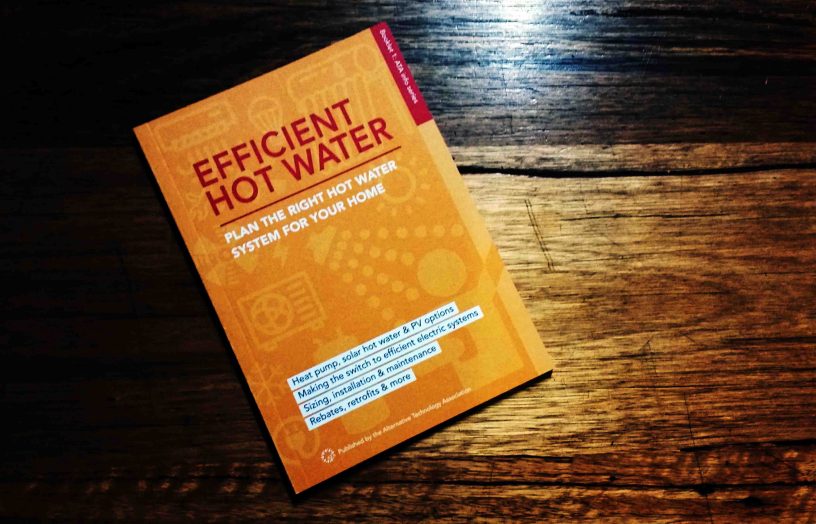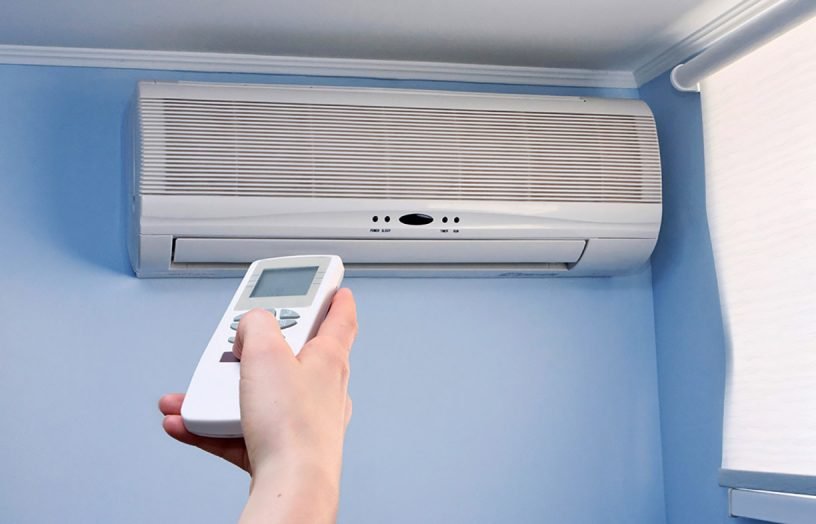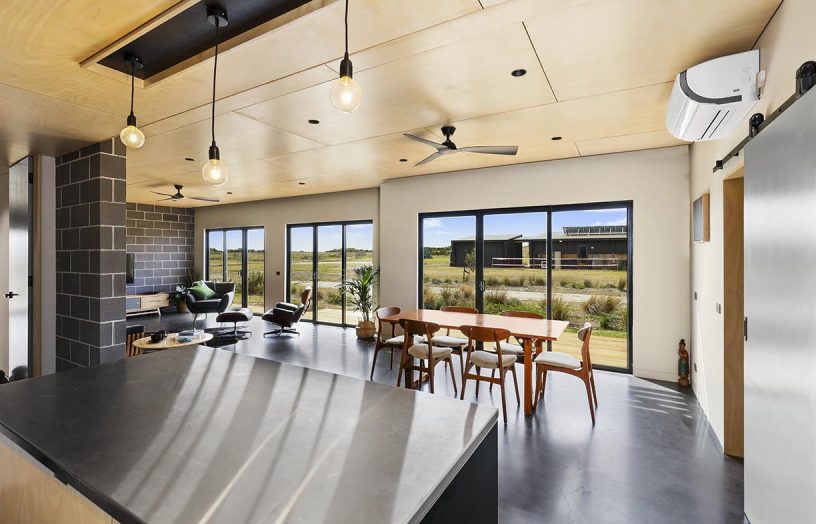Efficient electric hot water
Gone are the days when a resistive hot water system was the only electric hot water system around. If you plan to switch your appliances off-gas one by one then a heat pump is one of the leading electric hot water choices these days. You can use your own solar electricity to run the system, and they are incredibly efficient, reducing year-round energy requirements for hot water by around 50 per cent or more depending on the climate, brand and model. There’s a lot to consider when buying a heat pump hot water system, from confirming whether it’s the right hot water system for your home, to where to place the unit for best results. Read on to find out more about heat pump hot water systems and book an Energy Consult to plan the most efficient system for your home.
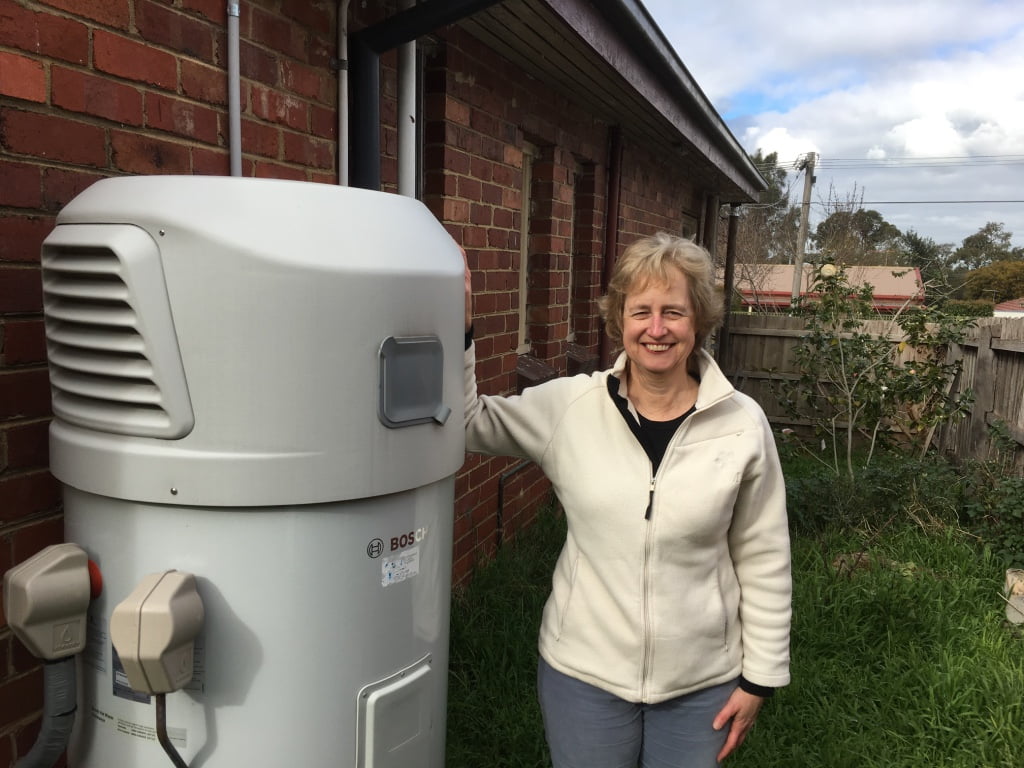
A heat pump moves, or ‘pumps’, heat from one medium into another, with air conditioners and refrigerators the most common forms of heat pumps. Heat pump hot water systems concentrate low-grade heat from the air (which is why they count as renewable systems for STC rebates) and dump it into the water storage tank. They are much more efficient than conventional resistive electric water heaters, although they do still use electricity to operate: compared to resistive heaters, they are capable of reducing year-round energy requirements for hot water by at least 50 per cent, and by as much as 78 per cent depending on the climate, brand and model.
The most common systems are air-source heat pumps where heat is extracted from the air. Ground-source heat pumps (which use buried coils to take heat from the ground) can be even more efficient than air-source heat pumps and might be an option if you’re considering both water and space heating systems. They are a great deal more expensive than air-source heat pumps, though, so often aren’t viable.
Find out more about heat pump hot water systems in the Renew magazine Efficient hot water buyers guide and Efficient hot water booklet.
Heat pumps hot water systems are great value for households looking to make the most of their solar electricity. With lower feed-in tariffs in place there is greater value in using your solar electricity on site rather than exporting it to the grid. This can be done by shifting a large energy user, such as water heating, to solar generation hours via a heat pump or a traditional resistive hot water system.
It’s hard to go past a heat pump for energy use. Heat pumps can be up to four times more efficient than resistive electric systems, but cost three to four times as much. Renew compared the cost of purchasing, installing and running a traditional electric resistive hot water system versus a heat pump hot water system for a Sydney home with existing solar. Given maximum possible use of the solar to run the hot water system the analysis suggested that most households would be better off or at least no worse off over 10 years with a heat pump compared to an electric resistive system.
Certain types of hot water system are more suitable in some climate zones than others, however, there is something of a myth regarding heat pumps and their lack of suitability in colder climates. There are a number of heat pumps available, especially those that use CO2 as a refrigerant, that are suitable for use in climates with even sub-zero temperatures. So regardless of where you live, heat pumps are almost always a viable option—but check the efficiency curve, which is usually part of the brochure or datasheet (if not, contact the manufacturer or supplier) of the proposed system for suitability in your climate.
One way to compare the climate applicability of systems is to check the number of STCs that apply to the system in your climate zone. You can find the register of STCs by climate zone at www.bit.ly/HW_STCs. The higher the STCs for your zone, the better.
The Making a Choice chapter in the Efficient Hot Water booklet lists the pros and cons of each system to help you decide which one suits your home the best.
Solar thermal systems require either a strong or reinforced roof for close-coupled systems, or require regular pump maintenance for split systems.
Integrated (one-piece) heat pumps, being fully ground-mounted and not having water pumps, require neither of these. Split system heat pumps usually have water pumps for circulation between the compressor unit and the tank, but have the advantage that the tank can be inside while the compressor is outside—reducing heat losses from the tank in colder climates and making for flexible installation and ease of adding extra insulation.
Being refrigerant-based systems, heat pumps can require regassing from time to time, although if the system is properly sealed this should not occur any more than every 8 to 10 years. After all, how often do you have to regas your fridge or air conditioner?
Heat pumps can be run on a timer, either to make use of low off-peak tariff prices or to run more efficiently during the day due to higher ambient temperatures, or to use excess solar PV—they are more flexible than solar thermal water heaters in this respect.
However, heat pumps must always use electricity, even during summer, whereas solar thermal systems may be completely solar-powered during the warmer months—and in warmer climates, this can be most of the year. In cooler climates, they can still provide good savings, particularly if usage is well managed to suit the solar heating cycle.
In situations where shading is a big problem for solar thermal systems and drastic tree surgery is not an option (or shading is caused by the neighbour’s house), a heat pump may be the best option.
Like solar systems, heat pump hot water systems are generally configured as either one-piece (integrated) or split. In an integrated system, the evaporator and fan are mounted on top of or beside the tank and integrated into a single unit. In a split system, the heat pump mechanism is housed in a separate unit plumbed to the tank at installation time. Depending on the design, the pipes between the tank and the external unit will carry either refrigerant or water.
An integrated unit has the benefit of simplicity of installation and compactness, whereas a split-system unit allows greater flexibility in locating the two components. For example, you could locate the tank indoors and the heat pump mechanism outside on a wall. Integrated heat pumps weigh more so could take two people to move or install.
Keep in mind that the tank or compressor can be fixed or replaced separately on a split system, whereas that might not be possible with an integrated unit.
Currently only SA and Victoria offer state government rebates for heat pump water heaters, but STCs (small-scale technology certificates) are still available across Australia for installations of such renewable energy technologies— each STC is equivalent to the one megawatt hour of electricity the system will displace over a 10-year period.
STCs can save you a great deal on the cost of a new heat pump hot water system. The rebates and STCs are usually arranged by the supplier so you don’t need to do any paperwork to receive the discount. The price will probably still be higher than a similarly sized conventional water heater but savings on running costs can pay for this difference in 5 to 10 years in most cases.
Renew’s Efficient Hot Water booklet helps you plan your hot water system. With updated and expanded content, the latest edition looks at how to use household solar and GreenPower to run efficient electric systems such as heat pumps.
Renew magazine’s Efficient Hot Water buyers guide looks at what to consider when buying a heat pump hot water system, and also includes an extensive list of the products on the market, their specifications such as size tank material, boosting, STCs, timer option, warranty and price, if available.
We regularly publish articles about heat pump hot water systems on our magazine websites. Visit the Efficient Homes category of the Renew magazine website for the latest on heat pump hot water systems.
Have you got a question about heat pump hot water systems? Visit the Renew Community Portal to leverage the experience of other households, or use our Advice Service to help plan a hot water system that’s reliable and low on bills.
LATEST ARTICLES
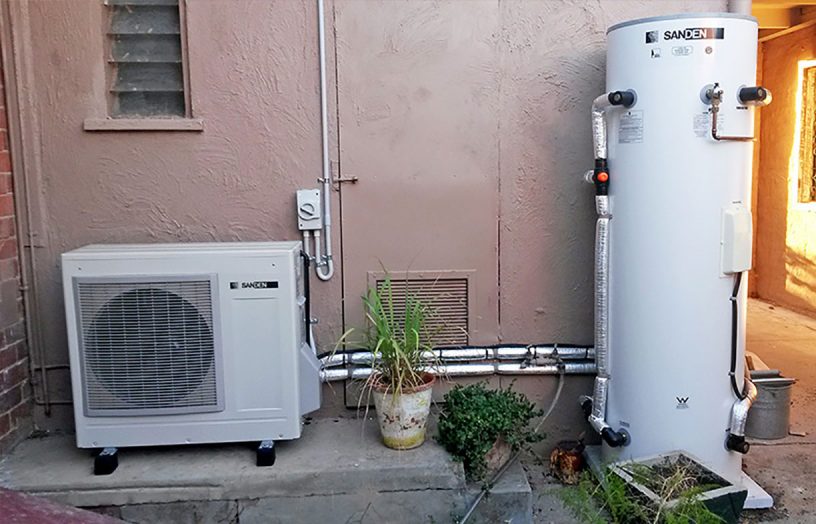 Buyers guides
Buyers guides
Hot water savings: Efficient hot water buyers guide
If your old hot water system has seen better days, maybe it’s time for an efficient replacement. We show you how solar and heat pump hot water systems work, what’s available and how to choose one to best suit your needs.
Read more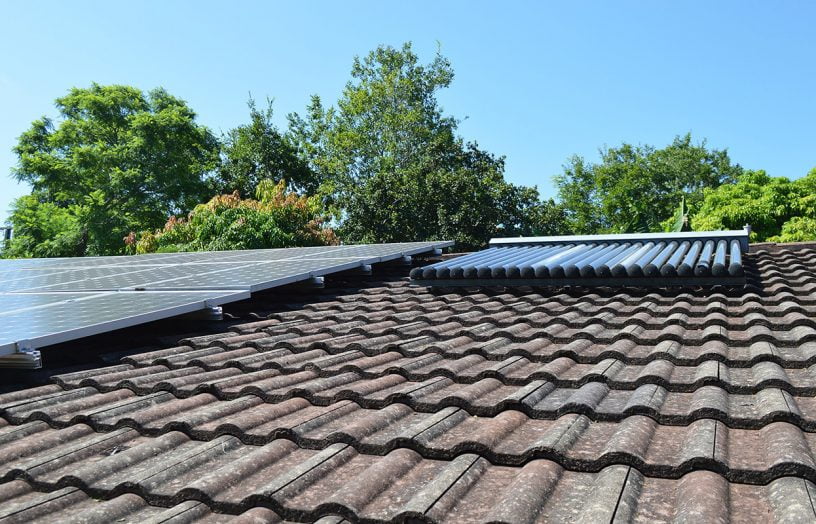 Hot water
Hot water
Getting into hot water: water heating ways
Five reader stories and five different systems that illustrate there’s more than one way to get into hot water!
Read more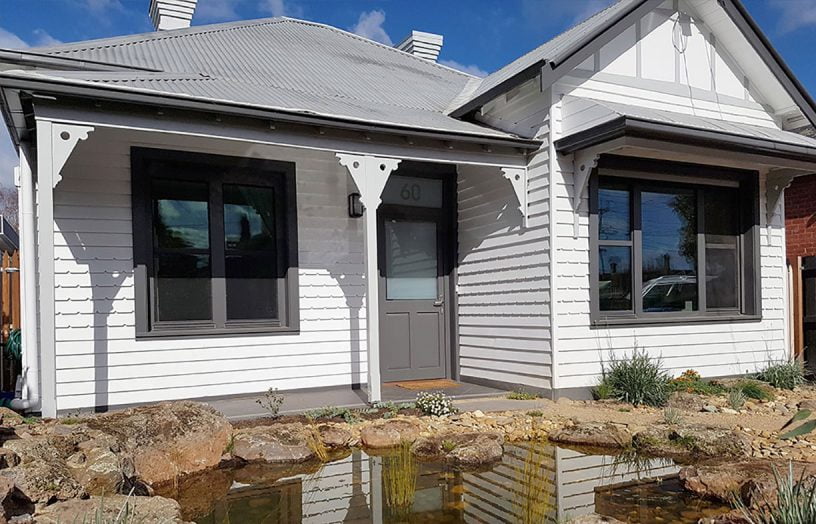 All-electric
All-electric
All-electric and hydronic: A model of efficiency
There's a lot to learn from this highly insulated and well-sealed renovation in Melbourne, not least how a heat pump is providing both hydronic heating and hot water. Cameron Munro explains the house's modelling-led upgrades and the tweaks made along the way.
Read more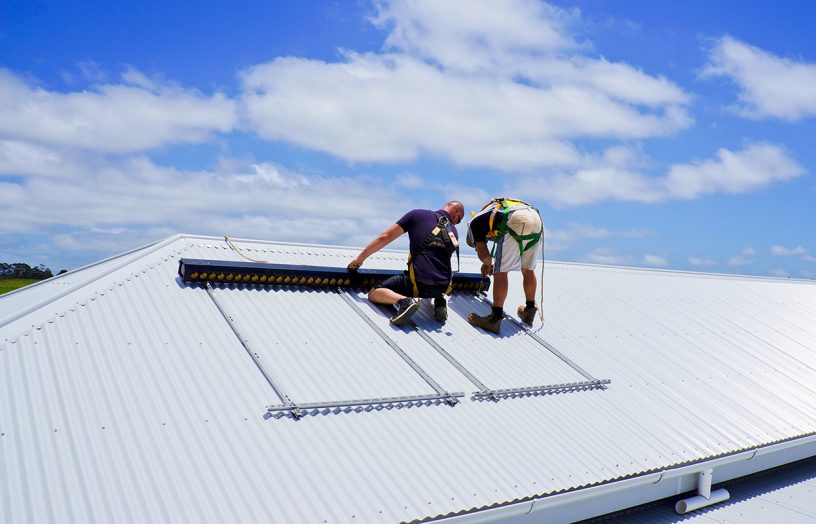 Hot water
Hot water
Questions for hot water system suppliers
It’s best to sound out an installer to check their reliability before buying a hot water system. Have they successfully installed this particular hot water system before? What happens if they go out of business? Here are some key questions to get you started.
Read more

